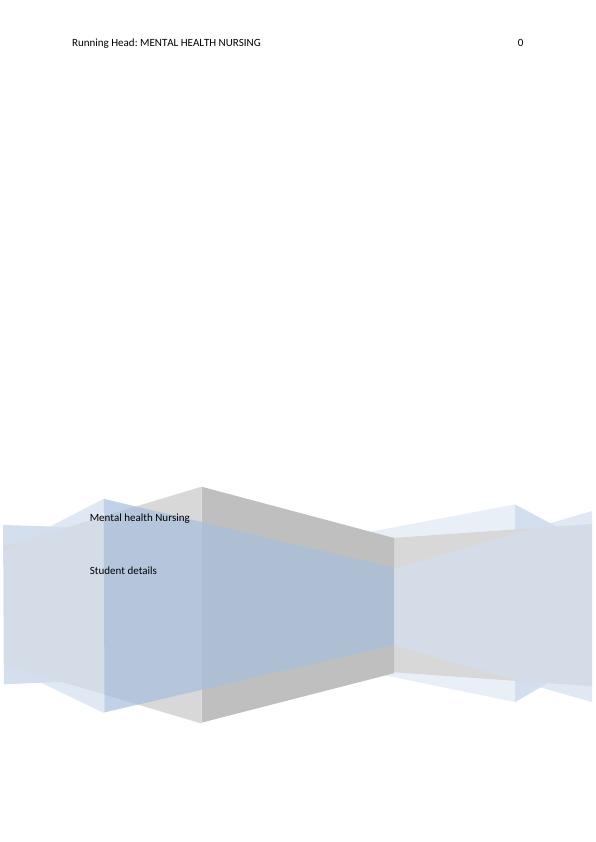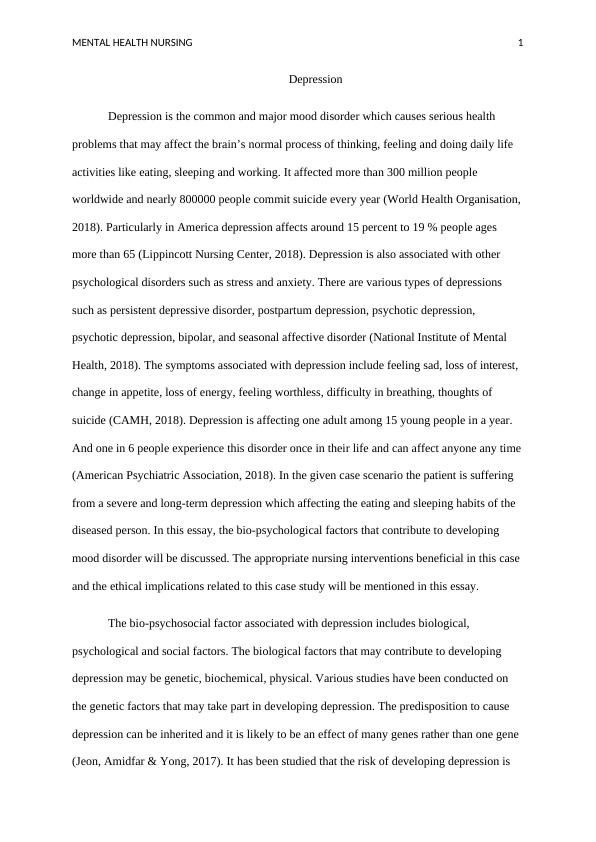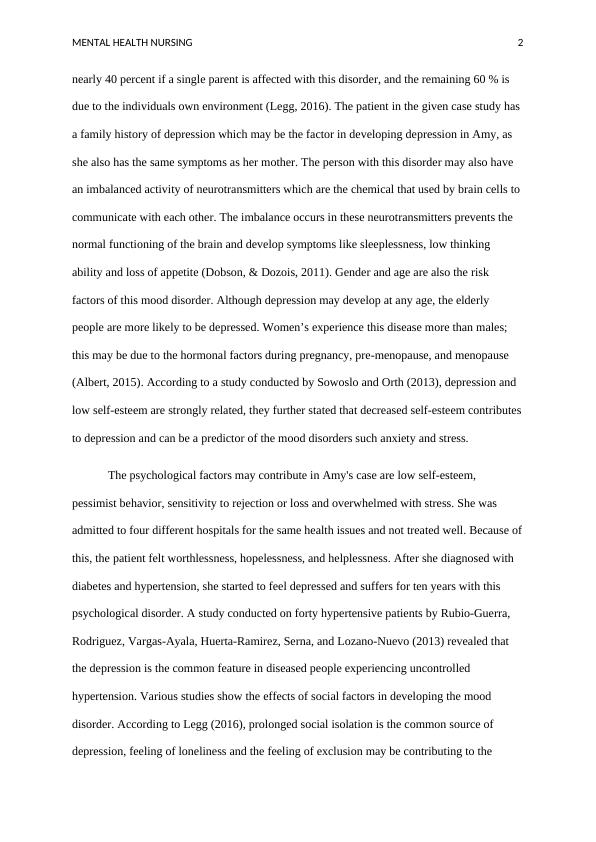Bio-Psychological Factors Contributing to Depression: Nursing Interventions and Ethical Implications
Analyzing a case study to discuss biopsychosocial factors and nursing management for a mental health issue.
9 Pages2829 Words414 Views
Added on 2023-06-09
About This Document
This essay discusses the bio-psychological factors contributing to depression, nursing interventions, and ethical implications. The patient in the case study is suffering from severe depression, and the essay provides insights into the various factors that contribute to the mood disorder. The nursing interventions that can be applied to help the patient recover fast are also discussed. Additionally, the essay highlights the ethical implications that may arise while providing treatment to the patient.
Bio-Psychological Factors Contributing to Depression: Nursing Interventions and Ethical Implications
Analyzing a case study to discuss biopsychosocial factors and nursing management for a mental health issue.
Added on 2023-06-09
ShareRelated Documents
End of preview
Want to access all the pages? Upload your documents or become a member.
Depression: Symptoms, Causes and Factors Contributing to Depression in Adult Men
|8
|2752
|339
Signs and Symptoms of Severe Depressive Episodes
|18
|4926
|47
Schizophrenia: Aetiology, Pathophysiology, Assessments, Treatment, and Nurse Interventions
|6
|1347
|51
Understanding of Common Physical and Psycho : social Health Problems
|16
|4634
|39
Mental Health FOP
|5
|913
|247
Psychological Conditions Influencing Healthy Behavior and Sport
|10
|2249
|68



